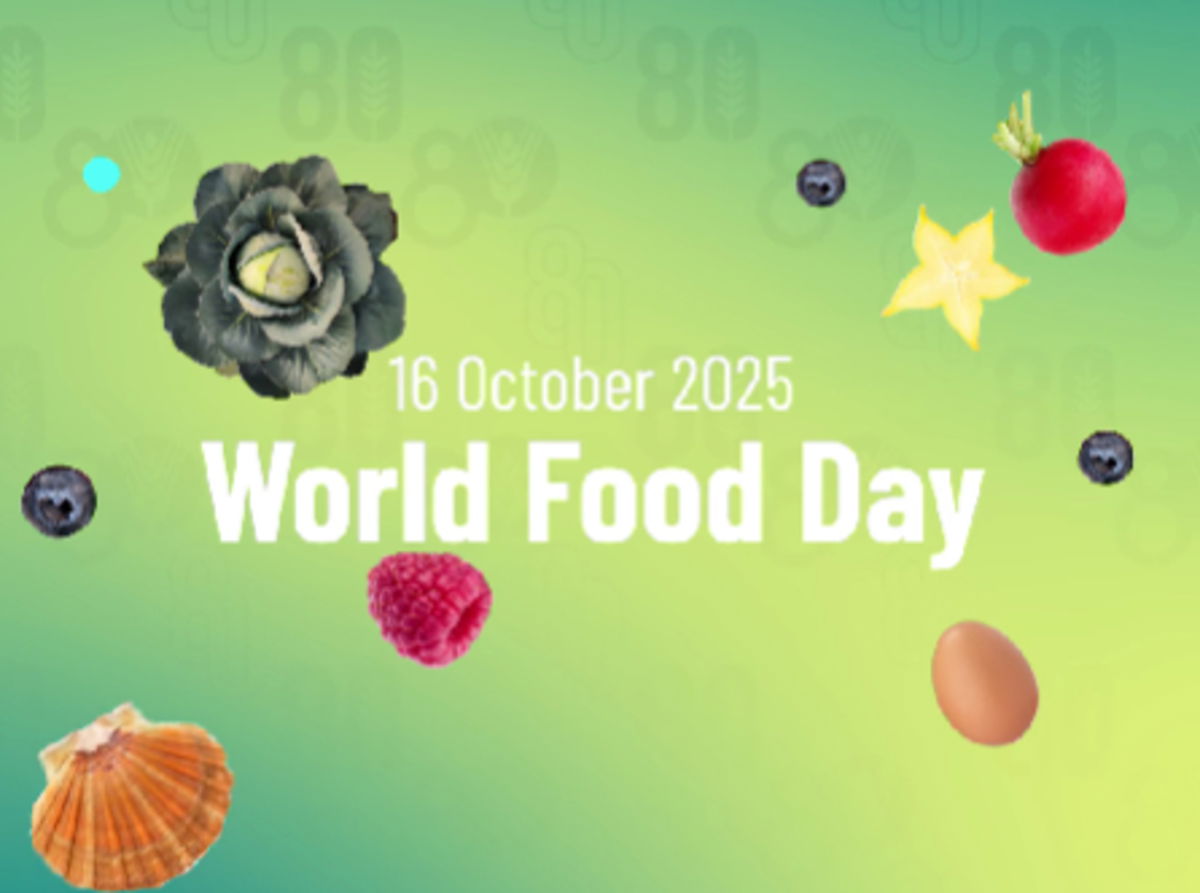World Food Day 2025. Credit: Instagram @fao
This year’s World Food Day, which falls today on October 16th, carries a powerful message: “Together for better food and a better future.”
This theme, chosen by the Food and Agriculture Organization (FAO), calls on people around the world to work together to reshape the way the world produces, distributes and consumes food.
This year is also a good year to look back. FAO is celebrating its 80th anniversary, commemorating 80 years of work to end hunger and build healthier and more sustainable agricultural systems.
FAO anniversary in Rome
The heart of this year’s celebrations will beat in Rome, where world leaders, scientists and activists will gather for the 2025 World Food Forum at FAO Headquarters. Italian President Sergio Mattarella and Prime Minister Giorgia Meloni also joined Spain’s Queen Letizia and Pope Leo XIV on the occasion, underscoring their shared responsibility for the future of food security.
This is a symbolic milestone, not only for FAO but also for the 673 million people still suffering from hunger and those in rich countries fighting obesity and food waste. The message is simple but profound. The world’s food system is out of balance, and fixing it will require everyone’s cooperation.
NOway’s seafood industry
Among this year’s global contributions to the debate, Norwegian seafood stands out for reminding the world that the future of food does not lie only on land.
The Norwegian Fisheries Council (NSC) commemorated World Food Day by highlighting its long-term commitment to sustainable ocean management, a model built on science, cooperation and zero waste. Since the late 1970s, Norway has been a leader in responsible fisheries management.
“Research-based knowledge and guidance are vital to ensuring sustainable seafood management. Through this approach, the Norwegian seafood industry must always adhere to sustainable practices. We believe this will make it easier to choose fish from healthy sources and will be a good way to meet the growing consumer demand for conscious consumption,” said Björn Erik Stabel, NSC UK Director.
New research shows real progress. The country’s whitefish industry currently uses 70% of all remaining raw materials. That means very little is wasted.
Further research shows that around half of consumers around the world are willing to pay more for sustainably sourced seafood, suggesting that responsible fishing is more than just good policy. It’s good business.
World Food Day is discussed around the world
In the United States, FAO collaborated with Arizona State University and the Sprouts Healthy Communities Foundation to conduct an event, “Food is Medicine, Eating for Health,” exploring the connections between food, health, and sustainability.
Meanwhile, in the Netherlands, the Breda University of Applied Sciences has launched a three-year research project to study how hospital cafeterias can steer people towards healthier and more sustainable diets.
And in the UK, Compassion in World Farming released a shocking report, revealing that factory farming wastes more grain than households, food services and retail stores combined – around 766 million tonnes each year. The group claims that shifting away from grain-fed livestock farming could feed up to 2 billion people a year.
ukrainian grain
Food security is also deeply tied to geopolitics. Despite nearly four years of war, Ukraine continues to play an important role as one of the world’s breadbaskets.
Last year, Ukrainian grain reached vulnerable regions such as Yemen and Ethiopia, feeding 152 million people, according to the World Food Program. However, exports fell by nearly 40% in September due to renewed Russian attacks on major Black Sea ports.
FAO’s message this year is that consumers also have power. Choosing locally grown food, reducing waste, and supporting sustainable brands are all steps toward a more just system. As FAO states, “The choices we make every day shape the world we live in.”
View all the latest news.








